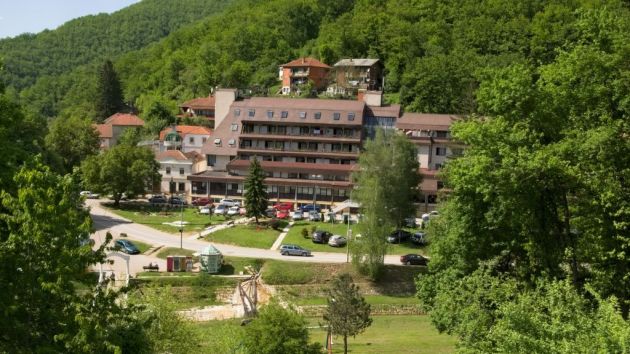Social-Economic Council fails to approve Draft law on employees in public services
 Tuesday, 21.11.2017.
Tuesday, 21.11.2017.
 11:29
11:29

– Unfortunately, we have failed to reach a consensus so that the Social-Economic Council would support the law. Most of the trade unions which took part in the discussion had a positive opinion. However, there were some trade unions, such as the cultural and part of the educational ones, that didn't accept the law. For this reason, positive opinions were not given – the president of the Council and the president of the Confederation of Autonomous Trade Unions of Serbia, Ljubisav Orbovic, said at the press conference at the Government of Serbia.
He announced that, regarding the salary raises in a certain part of the public sector, the Social-Economic Council would file a request for a meeting for the purpose of resolving the issue to the Government of Serbia and Prime Minister Ana Brnabic.
– You can see that there are protests these days when it comes to the postal sector. There's dissatisfaction regarding RTS, pension and disability insurance, health insurance... These are all companies belonging to the public sector, which had salaries cut by 10%, but which are not having salaries raised now that it is being done, instead having salaries on the same level or lower than they previously were – he said.
The president of the Independence Trade Union, Zoran Stojiljkovic, said that several suggestion regarding the draft law on employees in public services had been adopted, but that numerous trade unions were still reserved.
– The sector of culture does not see itself in the solutions in the new law, and the sector of education cannot accept it either for numerous reasons, the main one being that the imbalance in salaries has been kept – he said.
According to him, the law targets around 300,000 people.
– The difference between those who had their salaries cut by 10% in 2014 and those who had their salaries increased is about RSD 150,000 – Stojiljkovic said.
Ruzic said that the Social-Economic Council had given a positive opinion of the draft law on amendments to the wage system in the public sector, and that the positions on the draft law on employees in public services had not been brought closer in a definitive way.
He said that the law pertained to over 300,000 permanent employees in the sectors of education, healthcare, culture and science.
Ruzic added that the intention of the Government of Serbia and his ministry was for “a more equal position” to be introduced.
As he said, the fact that the Council didn't approve the draft law doesn't mean that the reform of the wage system in Serbia will not continue.
 Socijalno-ekonomski savet Republike Srbije Beograd
Socijalno-ekonomski savet Republike Srbije Beograd
 Vlada Republike Srbije
Vlada Republike Srbije
 Ministarstvo drĹľavne uprave i lokalne samouprave Republike Srbije
Ministarstvo drĹľavne uprave i lokalne samouprave Republike Srbije
 Savez samostalnih sindikata Srbije
Savez samostalnih sindikata Srbije
 Narodna skupština Republike Srbije
Narodna skupština Republike Srbije
Most Important News
07.05.2024. | IT, Telecommunications
Biggest Angular conference in the region – NG Belgrade Conf 2024

06.05.2024. | Healthcare
Medical doctors and engineers from Nis design instrument which accelerates and improves efficiency of operating procedures – Negotiating with foreign companies about production

06.05.2024. | Healthcare
06.05.2024. | Construction, Tourism, Sports, Culture, Healthcare
Sijarinska Banja should soon get a new look – Project documentation for reconstruction of rehabilitation center complex being prepared

06.05.2024. | Construction, Tourism, Sports, Culture, Healthcare
18.10.2024. | Construction, Transport
Ministry issues decision on building permit for construction of new bridge in place of Old Sava Bridge

18.10.2024. | Construction, Transport
07.05.2024. | Industry, Construction
New Palfinger factory in Nis to start working in June

07.05.2024. | Industry, Construction
18.10.2024. | Construction, Transport
Construction of Vozd Karadjordje highway to start next summer, president announces

18.10.2024. | Construction, Transport


 Izdanje Srbija
Izdanje Srbija Serbische Ausgabe
Serbische Ausgabe Izdanje BiH
Izdanje BiH Izdanje Crna Gora
Izdanje Crna Gora


 News
News






